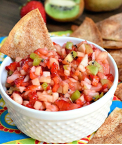Sharing EFNEP With My Community
go.ncsu.edu/readext?942740
en Español / em Português
El inglés es el idioma de control de esta página. En la medida en que haya algún conflicto entre la traducción al inglés y la traducción, el inglés prevalece.
Al hacer clic en el enlace de traducción se activa un servicio de traducción gratuito para convertir la página al español. Al igual que con cualquier traducción por Internet, la conversión no es sensible al contexto y puede que no traduzca el texto en su significado original. NC State Extension no garantiza la exactitud del texto traducido. Por favor, tenga en cuenta que algunas aplicaciones y/o servicios pueden no funcionar como se espera cuando se traducen.
Português
Inglês é o idioma de controle desta página. Na medida que haja algum conflito entre o texto original em Inglês e a tradução, o Inglês prevalece.
Ao clicar no link de tradução, um serviço gratuito de tradução será ativado para converter a página para o Português. Como em qualquer tradução pela internet, a conversão não é sensivel ao contexto e pode não ocorrer a tradução para o significado orginal. O serviço de Extensão da Carolina do Norte (NC State Extension) não garante a exatidão do texto traduzido. Por favor, observe que algumas funções ou serviços podem não funcionar como esperado após a tradução.
English
English is the controlling language of this page. To the extent there is any conflict between the English text and the translation, English controls.
Clicking on the translation link activates a free translation service to convert the page to Spanish. As with any Internet translation, the conversion is not context-sensitive and may not translate the text to its original meaning. NC State Extension does not guarantee the accuracy of the translated text. Please note that some applications and/or services may not function as expected when translated.
Collapse ▲Hunger can affect people from all walks of life, over 9 million children are affected with hunger in the USA each year. You can’t always see pain, a crisis, depression nor hunger by just looking at a person. Helping our families within the community to find resources for meals can take a child a long way.
I am looking forward to sharing the Expanded Food and Nutrition Education Program (EFNEP) again with our community. The Food Bank of the Albemarle food pantry has now opened. It’s been 3 years since I’ve been able to share healthy, wealthy and wise ideas of EFNEP with the Elizabeth City community at one of my favorite locations. I’m excited to share great information on meal planning, food safety, picky eating habits, fresh produce and just what is that and how can I use/cook it for our community neighbors.
Participants will get the experience of EFNEP’s hands-on taste sample of recipes prepared from items provided by the pantry in the new Food Bank of the Albemarle Teaching Kitchen.
As the pantry receives fresh produce clients will experience different recipes to challenge their taste palettes. In the month of June different types of salsa will start off our challenges, getting in a variety of different fruits and vegetables.
Fresh Homemade Salsa
Makes 2 cups
Ingredients
- ½ medium yellow onion, finely chopped
- 1 green bell pepper, finely chopped
- 2 tablespoons cilantro, chopped
- 1 tablespoon lime juice, or juice from half a lime
- 1 (14.5-ounce) can diced tomatoes, drained, liquid reserved or 1 ½ cups chopped fresh tomatoes
- ½ teaspoon cumin
Directions
- Rinse and cut onion, pepper, cilantro, and lime.
- Combine all ingredients in a bowl.
- Add some reserved tomato liquid to thin salsa if desired.
- Cover and refrigerate 30 minutes to 24 hours to allow flavors to blend.
Source: Cooking with EFNEP, Feeding America




